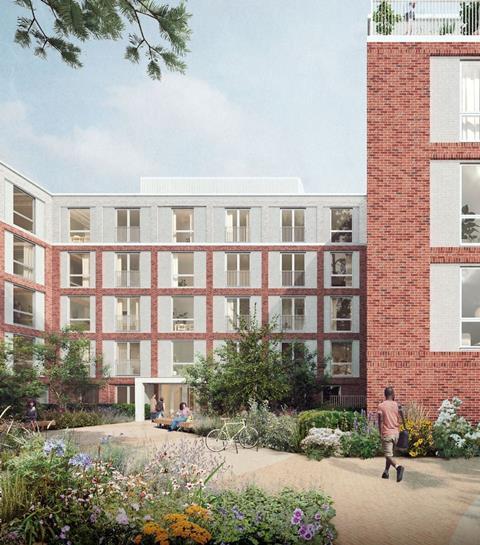Two planning approvals include developer’s first ever build to rent project
Developer Pocket has received permission for more than 500 homes across two schemes in north London in a boost for the builder of micro-homes targeting first time buyers.
The permissions include a 457-home build to rent project – its first rental scheme – from the Old Oak Common and Park Royal Development Corporation at Atlas Road. The Atlas Wharf scheme, across three buildings connected by a ground floor podium, was designed by Grid Architects and will provide studio, one-, two-, and three-bed flats, of which 35% will be rented at discounted levels.
The project, next to the Grand Union Canal, was submitted for planning in December last year and will include resident amenity spaces, cycle storage and ground floor commercial and retail uses.

The second permission, from Barnet council, is for a 60-home scheme of up to five storeys in Finchley, of which 56 will be intermediate affordable homes priced 20% below the local market.
The homes will remain affordable in perpetuity through lease conditions. Tony Fretton Architects designed the project.
>> See also The London problem: How rising costs are hitting development in the capital
The permissions will be welcome news for Pocket which blamed building and planning problems after it in the summer reported a £18.9m loss for the 2021 calendar year on turnover of £17.6m.

Pocket co-founder Marc Vlessing at the time said the firm had suffered from “rampant cost inflation” facing the wider sector, but also told Housing Today that the firm had faced broader “political, administrative, and financial” hurdles, with planning in particular taking “too long” given recent changes to the London plan.
Thomasin Renshaw, Pocket Living development director, said: “These homes will be thoughtfully designed and based on the Pocket ethos of good quality at an attainable price. At the heart of BtR developments is the amenity space and how this fosters a sense of community. We have been delivering these types of stylish spaces for the last 15 years, well before the BtR sector was established in the UK.”











No comments yet